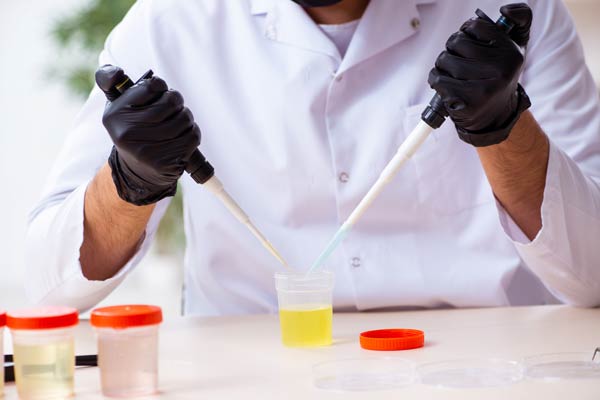Heroin is a highly addictive and illicit opioid-based drug that is extremely powerful and leads to many overdoses across the country. It is a Schedule I controlled substance which means it has no medicinal value and addiction is a huge risk factor. The National Institutes of Health says about heroin:
Heroin is an illegal, highly addictive drug processed from morphine, a naturally occurring substance extracted from the seed pod of certain varieties of poppy plants. It is typically sold as a white or brownish powder that is “cut” with sugars, starch, powdered milk, or quinine. Pure heroin is a white powder with a bitter taste that predominantly originates in South America and, to a lesser extent, from Southeast Asia, and dominates U.S. markets east of the Mississippi River. Highly pure heroin can be snorted or smoked and may be more appealing to new users because it eliminates the stigma associated with injection drug use. “Black tar” heroin is sticky like roofing tar or hard like coal and is predominantly produced in Mexico and sold in U.S. areas west of the Mississippi River. (NIH)
One of the more important things to remember here as we discuss heroin in the body is that heroin is processed from morphine, which is a naturally occurring substance found in the opium poppy plant.
How Long Does Heroin Stay in Your System?
Heroin is a very short-acting opioid. Users get an intense euphoric high that is short-lived, followed by a state of extreme relaxation, happiness, and sleepiness. Heroin does not stay in your body long. It is quickly metabolized and broken down into byproducts and metabolites, but the effects of heroin usually last 4 to 5 hours after the last dose. Heroin has a short half-life. The half-life of the drug is around 30 minutes. This means that the concentration of heroin in the blood is reduced by half after only about 30 minutes. When an individual takes in a dose of heroin, within an hour or less the heroin may already be out of one’s systems. It is then broken down into metabolites or Morphine. The metabolites can linger in the system for a few days and are what is detected on drug screens. There are many factors that will determine how long it takes for the drug to get out of your system, which then means it will no longer be detected on a drug screen. Some of the newer more advanced tests can detect traces of the drug for longer periods since the last dose was taken. As stated below, most tests now look for the metabolites which are created when the body starts breaking down the drug. Exactly how long heroin stays in the system depends on several factors which include:
- Age
- Body fat
- Height and weight
- The amount is taken
- Metabolism
- Hydration
- Quality of the drug
- Numbers of days taken
- The health of the user’s liver and kidneys
How Long Is Heroin Detected in the Urine?
Most urine drug screens will no longer detect the metabolites of heroin after 2-3 days; however, some tests can show a positive result for up to 3 or more days after last use. Urine drug screens do detect heroin longer than blood or saliva tests, but less time than a hair follicle test. Heroin can be detected in the hair for up to 3 months or more after last use. Staying hydrated with a lot of water, getting exercise, and eating a healthy diet will help the drug to be eliminated by the body quicker. This is helpful during the detoxification phase when you’re dealing with uncomfortable heroin withdrawal symptoms.
Treatment for Heroin Addiction
The only true way to assure heroin is not detected in the urine is to not use it. You don’t have to continue to suffer, there is help available. If you or someone you love needs help with an addiction, our addiction specialists are available around the clock to assist you. Evoke Wellness at Cohasset offers evidence-based treatment programs to cater to the individual needs of each patient. Call us today to get yourself on the road to a lasting recovery!




